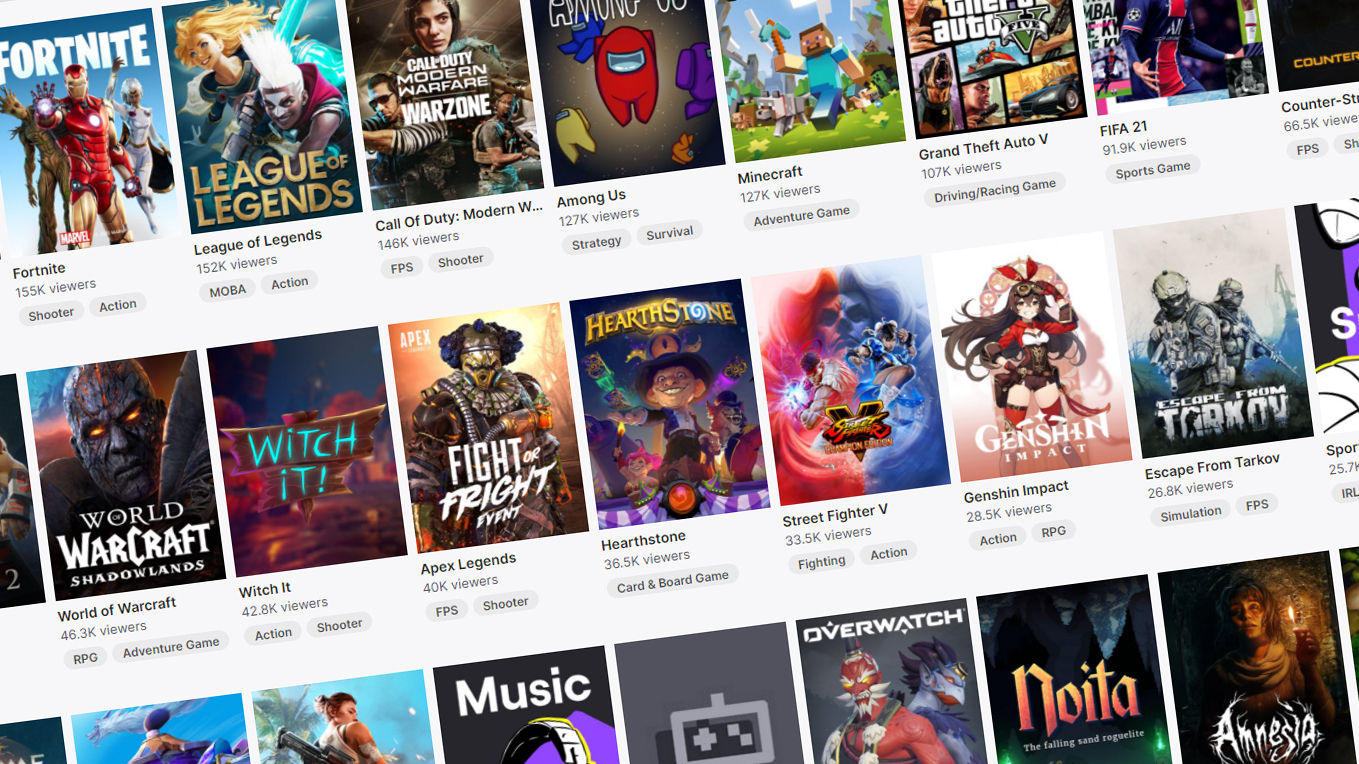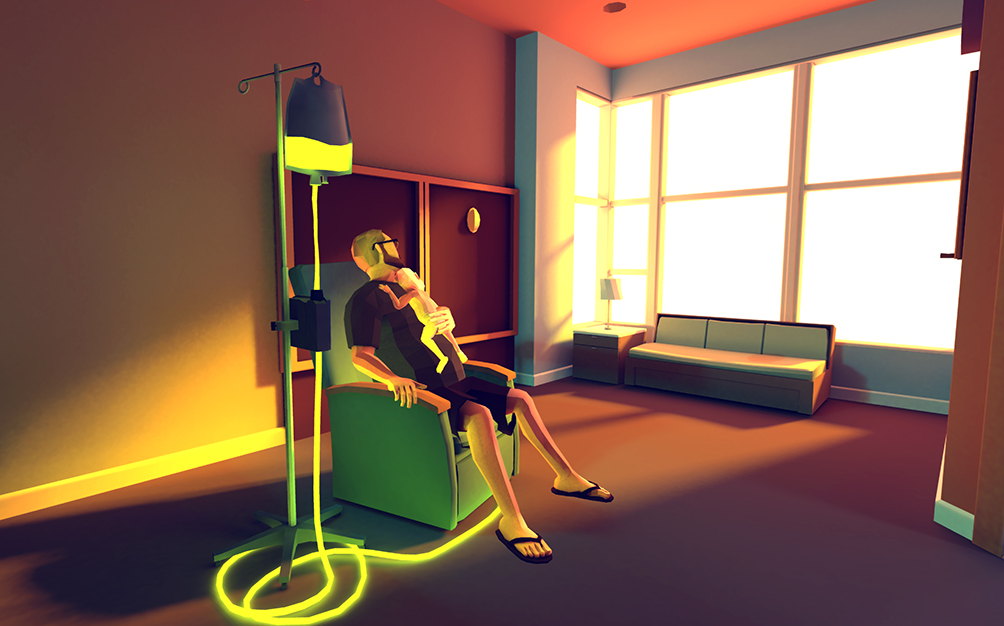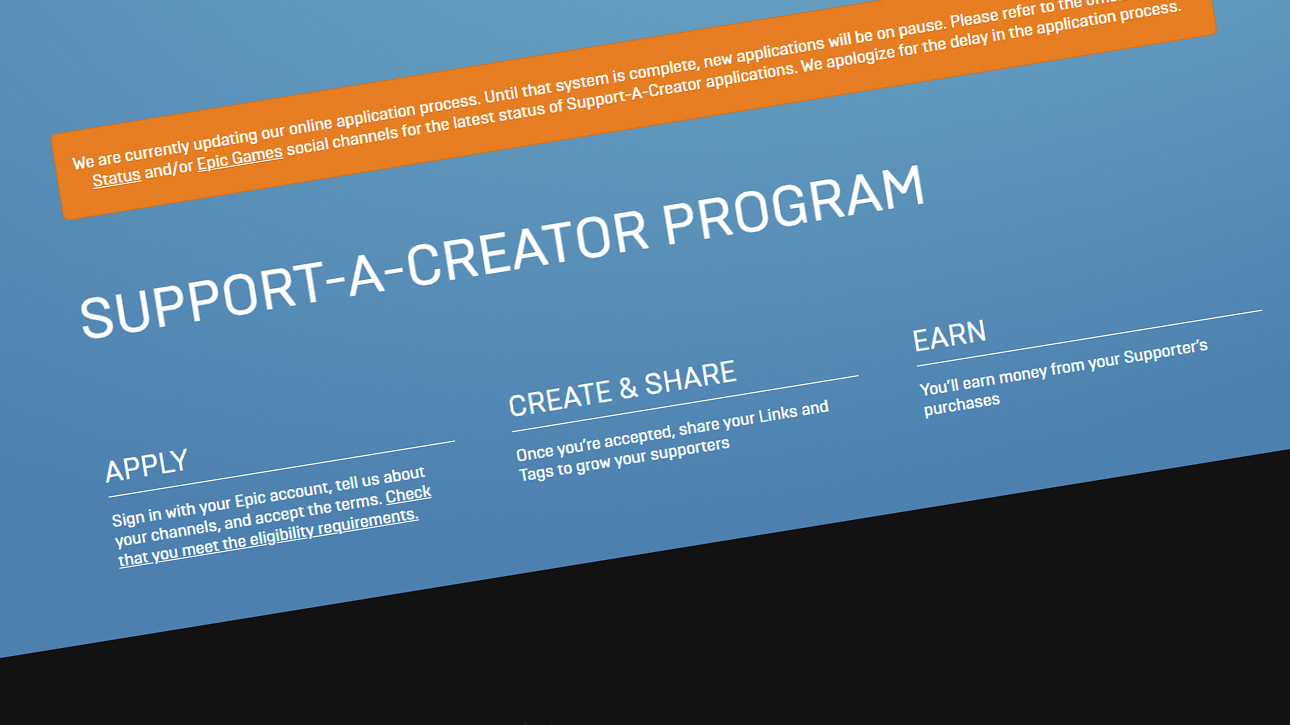Should streamers pay game developers to stream their games?
In many cases, streamers and game publishers have an informal agreement. Will it last forever?

Alex Hutchinson, creative director at Google Stadia subsidiary Typhoon Studios, said on Twitter today that he thinks streamers should pay game publishers and developers for a license to stream their games.
"Amazing to me that people are upset at someone saying that the creators of content should be allowed to make some of the money from other people using their content for profit," said Hutchinson after his comments were run through the standard gauntlet of Twitter mockery.
As you'd expect, the suggestion that streamers are getting away with something by not writing checks to game publishers wasn't received well by many game industry commentators. But even if 'streamers should pay developers' feels a bit simplistic, the legal and ethical questions around streaming's future are worth exploring, because they're hardly settled.
The real truth is the streamers should be paying the developers and publishers of the games they stream. They should be buying a license like any real business and paying for the content they use.October 22, 2020
As Hutchinson expresses, it's true that without a written license, streamers don't have any legal right to stream someone else's videogame, for the same reason they don't have a legal right to stream whatever movies or songs they want. A game's art and sound effects and music and voice acting and text and so on are all protected by copyright—and it's not "fair use" to spend hours entertaining an audience by playing a game. However, a lot of developers and publishers believe they benefit from exposure on big streaming platforms like Twitch, and so most of them don't make a fuss about it.
An excellent recent case study is Among Us, which spent two years in relative obscurity before popular streamers picked it up and launched it into the mainstream, helping it become a massive hit. It was a win-win for streamers and the developers. Who wouldn't want that?
Well, there are some complications.
1. For streamers: What happens if big publishers and streaming platforms change their minds? Microsoft, Amazon, Google, EA, Ubisoft, and others could change the rules overnight if they wanted to. That's scary for those who make a living streaming, especially when studio creative directors like Hutchinson tweet that "streamers should be paying the developers and publishers of the games they stream."
Keep up to date with the most important stories and the best deals, as picked by the PC Gamer team.
2. For developers: What about short, story-driven games? Surely streaming them lowers their value for viewers, rather than encouraging purchases.
Regarding the first question, the agreement between livestreamers and big publishers has begun to solidify over the past decade. In many cases, game publishers do publish a free license for livestreamers. Devolver Digital has a website dedicated to telling people that it's OK to stream and monetize their games. Blizzard says that it's fine, so long as you don't charge a viewing fee (it doesn't count stuff like Twitch Prime as a viewing fee). Even the notoriously litigious Nintendo has eased up: Two years ago, it published a policy which allows for footage of Nintendo games to be used in videos, so long as there's commentary. Devolver, Blizzard, and Nintendo can revoke these licenses whenever they want, but it's better than nothing. They aren't likely to revoke these agreements on a whim.
As for short, story-driven games, it's entirely up to streamers to decide whether or not livestreaming them is the conscientious thing to do. An indie dev can issue a DMCA takedown notice after the fact if they object to their game being streamed, but that doesn't stop the streams from happening in the first place, and may damage their reputation among streamers, video makers, and their fans.
(And it probably goes without saying that no one has established the practice of streamers paying small developers for the right to stream their games, so it doesn't happen, at least not that I've ever heard of.)

"Let's Play culture is vibrant and creative and really cool," said That Dragon, Cancer developer Ryan Green in a 2016 blog post, but he was upset, because the millions of YouTube views of playthroughs of his game didn't translate into sales.
"Despite infringing on developers' copyrights, [Let's Play videos] can especially benefit those who make competitive or sandbox games," wrote Green. "However, for a short, relatively linear experience like ours, for millions of viewers, Let's Play recordings of our content satisfy their interest and they never go on to interact with the game in the personal way that we intended for it to be experienced."
Would those millions of viewers really have purchased That Dragon, Cancer if it weren't for the videos? Not all of them, of course. Maybe some of them. We can only guess, but whatever the case, it's hard to fault Green for feeling stung by seeing his game rendered into video for millions to watch while far fewer bought and actually played it.
However, Hutchinson's suggestion that "streamers should be paying the developers and publishers of the games they stream" probably didn't draw a negative reaction because people want the creators of That Dragon, Cancer to make less money. I suspect that much of the reaction is about how enormous the repercussions of that blanket policy would be, if it could somehow be enforced. What Hutchinson matter-of-factly suggests would require a total remodel of Twitch and YouTube and effectively shut down game livestreaming as we know it, perhaps leaving behind only the tiny percentage of streamers who actually make a lot of money doing it.
We've seen other informal relationships formalize over time, like how modders are becoming publisher-recognized "Creators" in some cases.
Streamers should behave "like any real business," Hutchinson said, but most streamers are not businesses at all. They don't start with anything other than a PC, a webcam, a headset, an internet connection, and a game. Many are streaming for fun. A small number of streamers become popular enough to make a notable amount of money streaming, fewer make a living from streaming, and very few get rich doing it. Maybe Ninja should pay, but all streamers? How would a new streamer become popular enough to make money if they couldn't afford the licensing fee to start streaming popular games in the first place?

One company looking for a way to pay streamers while keeping game developers happy (and promoting its own store) is Epic Games. Epic's Support-A-Creator program, which is still in development, will give YouTubers and streamers a cut of game sales that they directly influence. That gives them incentive not just to increase their viewership and subscriber counts, but also to send their viewers to the store page of the game they're streaming. Of course, that arrangement won't necessarily work in all cases and won't necessarily please skeptical audiences. Would That Dragon, Cancer really have sold better if YouTubers were more motivated to get their viewers to play it? Hard to say.
Another idea: Maybe the big streaming platforms like Twitch and YouTube, which make far more money than any individual streamer, should be the ones to pony up cash to game developers and publishers? Twitch already provides streamers with a library of rights-cleared music, after all. But that could have undesirable repercussions, too. I can easily imagine a situation where streaming platforms vie for the exclusive rights to stream big games (exclusive esports streaming contracts are already a thing). From there, I can also imagine platforms limiting how much small-fry streamers can stream, or even charging them to stream certain games—what Hutchinson suggests, except with platforms like Twitch as the middlemen, because it isn't realistic for streamers to all act like businesses and negotiate individual contracts. Would individual developers really benefit from that arrangement, or mostly just Jeff Bezos and Bobby Kotick?
I don't think it's inconceivable that, within the next decade, we'll face these questions outside of hypothetical scenarios and Twitter beefs. We've seen other informal relationships formalize over time, like how modders are becoming publisher-recognized "Creators" in some cases. EA's Game Changers program is an example of the relationship between streamers and publishers tightening, although right now it's just about access and training.
Streaming is a big business, and it shouldn't be surprising if more parties seek a cut of its profits, beyond what the publishers get in publicity—but that won't necessarily mean a bigger cut for small-time streamers and small-time indie developers, who are the least powerful parties in the equation.

Tyler grew up in Silicon Valley during the '80s and '90s, playing games like Zork and Arkanoid on early PCs. He was later captivated by Myst, SimCity, Civilization, Command & Conquer, all the shooters they call "boomer shooters" now, and PS1 classic Bushido Blade (that's right: he had Bleem!). Tyler joined PC Gamer in 2011, and today he's focused on the site's news coverage. His hobbies include amateur boxing and adding to his 1,200-plus hours in Rocket League.

